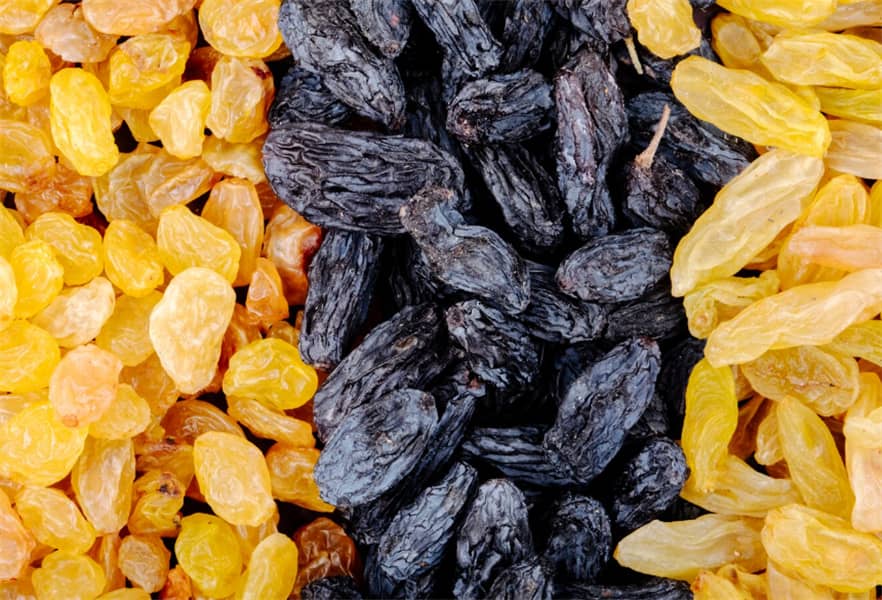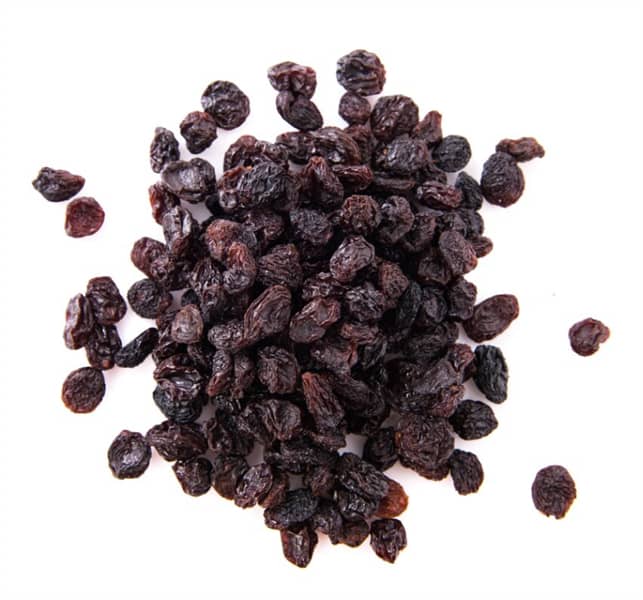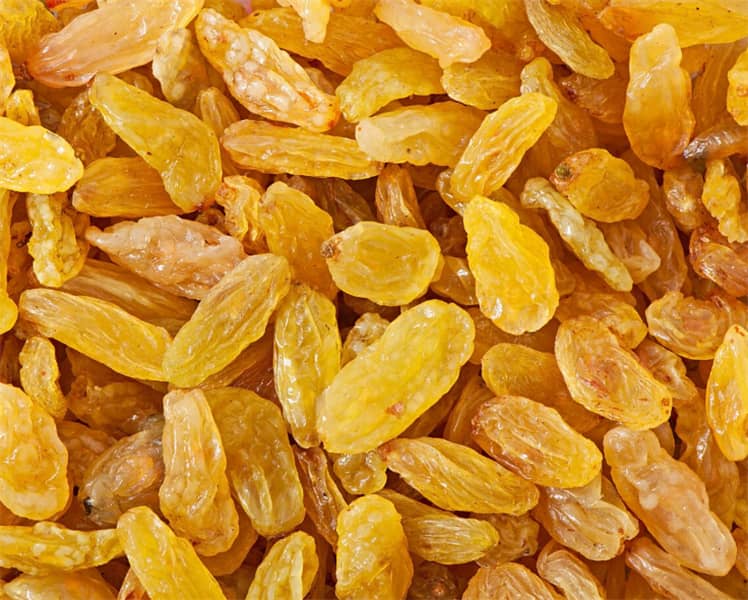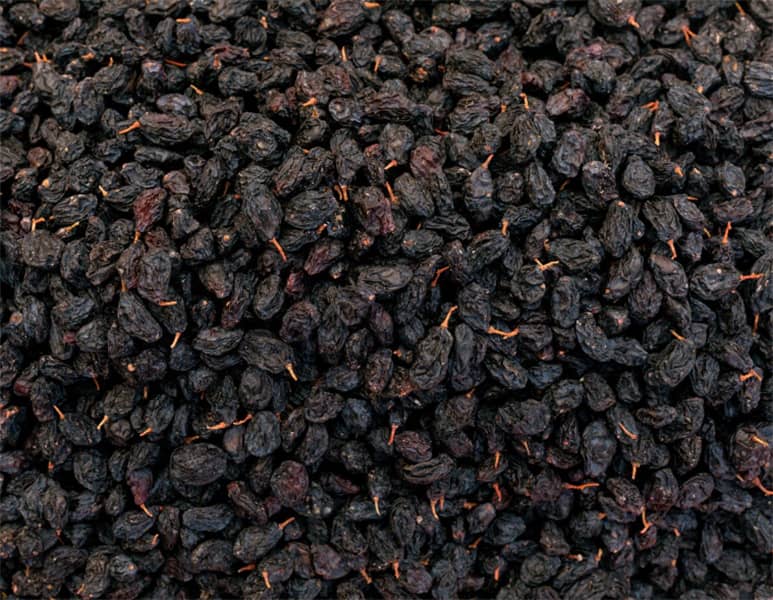Introduction: Embark on a Flavorful Journey with China Raisins
For centuries, raisins, those tiny packages of concentrated sunshine and sweetness, have captivated palates around the world. China, with its vast agricultural landscape and ideal growing conditions, stands as a leading producer of high-quality raisins. This comprehensive guide delves into the world of China raisins, empowering businesses to confidently navigate this vibrant market and unlock the full potential of this beloved snack and versatile ingredient.
Defining the Essence: What are China Raisins?
China raisins are simply dried grapes, primarily from green or red seedless grape varieties. These grapes undergo a meticulous drying process that transforms their plump, juicy flesh into chewy, intensely flavorful china raisins. China’s diverse climate and terroir allow for the cultivation of various grape varieties, resulting in a wide range of raisin flavors and characteristics.

From Vineyard to Pantry: The Journey of China Raisins
Cultivation and Harvesting: A Legacy Rooted in Tradition
China’s main raisin production regions, including Xinjiang, Gansu, and Liaoning, boast the ideal combination of sunshine hours, dry climate, and fertile soil needed for grape cultivation. Farmers employ both traditional and modern techniques to nurture healthy vines and ensure a bountiful harvest.
Harvesting typically occurs in late summer or early autumn, when the grapes have reached peak sugar content. Depending on the variety and intended use, grapes may be harvested by hand or with specialized machinery.
Drying and Processing: Transforming Grapes into Golden Nuggets
The transformation of grapes into china raisins is a carefully orchestrated process:
- Sun-Drying: The most traditional method, sun-drying, involves spreading the harvested grapes on trays or mats in direct sunlight. This natural drying process concentrates the sugars, intensifying the sweetness and developing the characteristic texture of china raisins.
- Shade-Drying: Some raisin varieties, especially those destined for premium markets, undergo shade-drying. This slower process, often conducted in well-ventilated sheds, helps preserve the natural color and delicate flavor of the grapes.
- Mechanical Drying: Modern raisin production often incorporates mechanical drying techniques using specialized tunnels or chambers. This method allows for greater control over temperature and humidity, ensuring consistent drying and reducing the risk of spoilage.
Cleaning, Grading, and Packaging: Ensuring Quality and Consistency
After drying, china raisins undergo several crucial steps:
- Cleaning and Stemming: Dried raisins are carefully cleaned to remove any stems, leaves, or other debris. This process may involve mechanical sorting, air cleaning, or hand inspection.
- Grading and Sorting: Raisins are meticulously graded based on size, color, moisture content, and the presence of any defects. Advanced sorting technologies ensure consistent quality and meet specific buyer requirements.
- Packaging: Graded china raisins are packaged in a variety of formats, from bulk bags for industrial use to smaller, consumer-friendly pouches and boxes. Packaging materials are chosen to preserve freshness, prevent moisture absorption, and extend shelf life.
Exploring the Spectrum: China Raisin Varieties
The China raisin market offers a diverse range of products to cater to various culinary, snacking, and industrial needs:
Product Information Table: China Raisins
| Raisin Type | Description | Key Features | Typical Uses |
|---|---|---|---|
| Turpan Raisins (Green Raisins) | Made from green seedless grapes, known for their golden-green color and sweet, slightly tart flavor. | Naturally sweet; chewy texture; good source of iron and potassium. | Snacking; baking (cookies, breads, muffins); trail mixes; breakfast cereals. |
| Flame Raisins | Made from red seedless grapes, prized for their vibrant reddish-brown color and intensely sweet, fruity flavor. | Naturally sweet; plump and juicy texture; high in antioxidants. | Snacking; baking (cakes, cookies, quick breads); trail mixes; granola bars. |
| Golden Raisins | Typically made from Thompson Seedless grapes, treated with sulfur dioxide during drying to retain their golden color and plumpness. | Intensely sweet; soft and chewy texture; good source of energy. | Snacking; baking (cookies, breads, pastries); trail mixes; confectionery. |
| Black Raisins | Made from dark-skinned grape varieties, known for their rich, dark color, and intense, slightly tart flavor. | Naturally sweet with a hint of tartness; chewy texture; high in antioxidants. | Snacking; baking (fruitcakes, breads); savory dishes (tagines, pilafs); trail mixes. |



Applications Across Industries: The Versatility of China Raisins
Food and Beverage Industry:
- Snacking: china Raisins are a popular and nutritious snack, enjoyed worldwide for their natural sweetness and chewy texture.
- Baking: Raisins are a staple ingredient in countless baked goods, adding sweetness, texture, and nutritional value to cookies, breads, muffins, cakes, and more.
- Breakfast Cereals and Granola Bars: Raisins are a common addition to breakfast cereals and granola bars, providing natural sweetness and a burst of flavor.
- Confectionery: Raisins are used in various candies, chocolates, and other confectionery products, adding a chewy texture and a touch of natural sweetness.
Other Industries:
- Health and Wellness: Raisins are a good source of dietary fiber, potassium, iron, and antioxidants, making them a healthy snack option.
- Animal Feed: Raisins can be used as a natural sweetener and energy source in animal feed, particularly for horses and livestock.
Sourcing with Assurance: Navigating the China Raisin Market
Choosing a reliable supplier is paramount when sourcing china raisins, especially for large-scale commercial use. Here’s a comparison of CAIE with other prominent suppliers:
Supplier Comparison Table: China Raisins
| Supplier | Location | Price Range (USD/Metric Ton – as of November 2023) | Specialties |
|---|---|---|---|
| CAIE | Global | Contact for pricing | Premium quality China raisins; customized sourcing solutions to meet specific needs; reliable supply chain and exceptional customer support; focus on sustainable sourcing and ethical business practices. |
| Xinjiang Tianshan Fruit Industry Co., Ltd. | Xinjiang, China | $1,800 – $2,800 (Turpan); $2,000 – $3,200 (Flame) | Leading exporter of raisins from Xinjiang; specializes in Turpan and Flame raisins; offers competitive pricing and large-scale production capabilities. |
| Gansu Lixing Dried Fruit Co., Ltd. | Gansu, China | $1,900 – $3,000 (Golden); $1,700 – $2,900 (Black) | Specialized supplier of organic and certified raisins; known for its commitment to sustainable agriculture and high-quality standards; offers competitive pricing for premium-grade raisins. |
| Liaoning Dongfang Foodstuffs Co., Ltd. | Liaoning, China | $1,700 – $2,700 (Turpan); $1,900 – $3,100 (Flame) | Experienced exporter of various dried fruits, including raisins; offers competitive pricing and flexible order sizes; known for its reliable logistics and export documentation expertise. |
Note: Prices are approximate and subject to market fluctuations, order volume, product specifications, and other factors.
Balancing the Equation: Advantages and Limitations of China Raisins
Advantages and Limitations of Sourcing China Raisins
| Advantages | Limitations |
|---|---|
| Competitive Pricing: China’s large-scale raisin production and efficient supply chains often translate into competitive pricing. | Potential Supply Chain Complexities: Navigating China’s vast and complex supply chain can be challenging, requiring careful due diligence and strong local partnerships. |
| Diverse Product Range: China offers a wide variety of raisin types, sizes, and quality grades to meet diverse market needs. | Quality Control Variability: While China has made significant strides in quality control, variations in processing standards and practices can exist among different suppliers. |
| Established Infrastructure and Expertise: China has a long history of raisin production, with well-established infrastructure and skilled labor. | Language and Cultural Barriers: Communication barriers and cultural differences can sometimes pose challenges for international buyers. |
| Government Support for Agriculture: The Chinese government actively supports its agricultural sector, providing incentives and investments to enhance raisin production and exports. |
Beyond the Snack Aisle: Intriguing Facts About Raisins
- Ancient Origins: Raisins have been enjoyed for millennia, with archaeological evidence suggesting their consumption in ancient Egypt and Mesopotamia.
- Nutritional Powerhouse: Raisins are a natural source of energy, fiber, vitamins, and minerals, making them a healthy and convenient snack.
- Culinary Versatility: From sweet to savory dishes, raisins add a unique flavor and texture dimension to cuisines around the world.
Why Choose CAIE for Your China Raisin Sourcing Needs?
- Unwavering Quality Commitment: We source our raisins from trusted farms in China that adhere to stringent quality and safety standards. Our rigorous quality control measures ensure that only the finest raisins reach your facility.
- Tailored Sourcing Solutions: We understand that every business has unique needs. We offer a wide range of raisin varieties, product specifications, packaging solutions, and customized services to meet your specific requirements.
- Reliable Supply Chain, Uninterrupted Operations: Our well-established supply chain and strong logistics network ensure a consistent and timely supply of raisins, allowing you to meet your production demands without interruption.
- Competitive Pricing, Exceptional Value: We leverage our strong relationships with growers and our efficient operations to offer competitive pricing without compromising on the quality of our products.
- Dedicated Support, Every Step of the Way: Our team of experts is committed to providing exceptional customer service, guiding you through every step of the sourcing process, from initial inquiry to final delivery.
We believe in building lasting partnerships based on trust, transparency, and mutual success. Contact CAIE today to discuss your raisin sourcing needs and discover how we can help your business thrive.
Frequently Asked Questions: Addressing Your Key Concerns
Q1: Can CAIE provide organic or certified sustainable raisins to meet our company’s ethical sourcing policies?
A1: Absolutely. We understand the importance of responsible sourcing. We partner with farms that hold organic and sustainability certifications, ensuring our raisins meet the highest ethical standards. We’re happy to provide documentation upon request.
Q2: What is CAIE’s minimum order quantity (MOQ) for raisins, and what are your typical lead times?
A2: Our MOQ varies depending on the specific raisin variety, packaging requirements, and your location. We strive to accommodate both small and large businesses. Lead times typically range from 4 to 8 weeks, but we provide precise estimates upon receiving your detailed order.
Q3: Does CAIE offer different grades or quality levels of raisins to meet varying needs and budgets?
A3: Yes, we offer various grades of raisins, each meeting specific quality standards for size, color, moisture content, and the absence of defects. This allows us to cater to diverse applications and price points, ensuring you receive the perfect raisins for your needs.
Q4: Can CAIE assist with private labeling or custom packaging for our raisin orders?
A4: Certainly! We offer private labeling services and can work with you to develop custom packaging solutions that align with your brand identity and market requirements.
Q5: How does CAIE ensure the freshness and quality of its raisins during transportation and storage?
A5: We take every precaution to preserve the quality of our raisins. We use specialized packaging materials that prevent moisture absorption and protect against light and heat, preserving freshness and quality throughout transit and storage.
